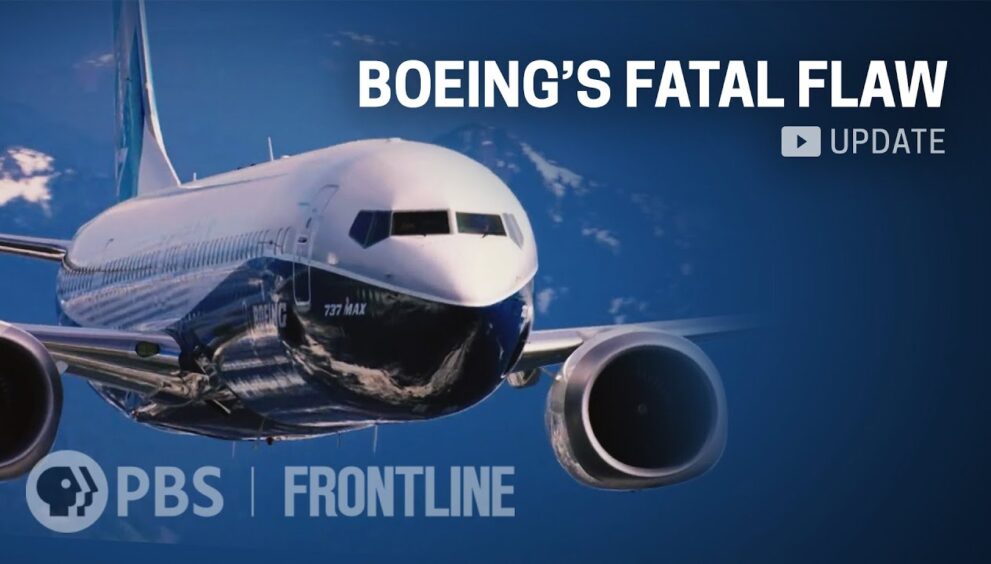Boeing’s Fatal Flaw: The Troubles with the 737 MAX

The 737 MAX Crisis
In recent years, Boeing’s 737 MAX aircraft has faced significant challenges and controversy. Two fatal crashes, one involving Lion Air Flight JT610 in Indonesia in October 2018, and another involving Ethiopian Airlines Flight 302 in Ethiopia in March 2019, led to the grounding of the entire 737 MAX fleet. The crashes resulted in the deaths of 346 people and exposed serious flaws in the design and certification processes of the aircraft.
The Flawed MCAS System
The primary issue with the 737 MAX was the Maneuvering Characteristics Augmentation System (MCAS). MCAS was designed to counteract the aircraft’s tendency to pitch up at certain angles of attack. However, faulty readings from the plane’s angle of attack sensors could trigger the system, forcing the aircraft into a dangerous nose-down position.
Boeing’s Rush to Compete
Many believe that Boeing’s rush to compete with Airbus and their A320neo aircraft led to the flaws in the 737 MAX design. Facing pressure to deliver a more fuel-efficient aircraft, Boeing decided to modify the existing 737 model rather than building a new one from scratch. The larger engines on the MAX required adjustments, including the addition of MCAS, to maintain the plane’s stability.
Delegation and Lack of Oversight
The relationship between Boeing and the Federal Aviation Administration (FAA) came under scrutiny during the investigation. The FAA had delegated certain oversight responsibilities to Boeing, which some argue created a conflict of interest. Boeing employees, acting on behalf of the FAA, were responsible for certifying the aircraft, raising concerns about the independence and effectiveness of the certification process.
Minimizing Pilot Training
To avoid costly pilot training and re-certification, Boeing downplayed the existence and significance of MCAS. The company did not include detailed information about the system in pilot training manuals, leading to a lack of awareness among pilots. Boeing went as far as proposing the removal of MCAS nomenclature from the manuals to minimize the need for additional training.
Failures in Safety Culture
The 737 MAX crisis exposed failures in Boeing’s safety culture. Internal documents revealed that engineers had expressed concerns about the MCAS system, its reliance on a single angle of attack sensor, and the potential for catastrophic failures. However, these concerns were dismissed or ignored, and crucial information was not communicated to operators, pilots, or regulators.
Lessons Learned and Ongoing Challenges
In the aftermath of the crisis, Boeing has faced significant scrutiny and legal consequences. The company has acknowledged its mistakes and has been working to address the issues with the 737 MAX. However, questions remain about the effectiveness of the changes made and the overall safety culture within the company.
The Path to Recovery
Rebuilding trust in the 737 MAX and Boeing as a whole will be a long and complex process. The company must demonstrate a commitment to transparency, safety, and accountability. Regulatory agencies, such as the FAA, must also strengthen their oversight and certification processes to prevent similar incidents in the future.
The Human Cost
Beyond the technical and regulatory aspects, it’s essential to remember the human cost of the 737 MAX crisis. The lives lost in the Lion Air and Ethiopian Airlines crashes were a tragic consequence of systemic failures. The families of the victims continue to seek justice and accountability, and their stories serve as a reminder of the importance of prioritizing safety in the aviation industry. In conclusion, the 737 MAX crisis was a wake-up call for Boeing and the aviation industry as a whole. It highlighted the need for robust safety measures, effective oversight, and a strong commitment to putting passenger safety above all else. As the industry moves forward, it is crucial to address the flaws exposed by the 737 MAX crisis and ensure that such incidents are never repeated.
































































































































































































































































































































































































































































































































































































































































![Fixing [pii_email_aa0fea1a78a192ae7d0f] Microsoft Outlook Error](https://www.huffenpost.com/wp-content/uploads/2023/03/What-Causes-the.jpg)
![Fixing [pii_email_aa0fea1a78a192ae7d0f] Microsoft Outlook Error](https://www.huffenpost.com/wp-content/uploads/2023/03/How-to-fix-the-1-1024x1024.webp)
![Quick fixes for the [pii_email_dbd9dd084703ead3b9cf] Mail Error](https://www.huffenpost.com/wp-content/uploads/2023/03/How-to-Avoid-pii_email_b6b14f95f44a83737071-Outlook-Error-1024x576.jpg)
![How to fix the [pii_email_bbf95bff57a974a71da8] in Microsoft Outlook?](https://www.huffenpost.com/wp-content/uploads/2023/03/How-To-Solve-The-pii_email_9e750e335dfd9d75badb-Outlook-Error.webp)
![How to solve the [pii_email_b6b14f95f44a83737071] Outlook Error](https://www.huffenpost.com/wp-content/uploads/2023/03/How-to-Avoid-pii_email_b6b14f95f44a83737071-Outlook-Error.png)
![Ways to fix the "[pii_email_1fb861393abed78ab415] Error](https://www.huffenpost.com/wp-content/uploads/2023/03/pii_pn_56e685559f213991c933-Error-Causes-and-Solutions2.jpg)
![How to Fix the [pii_email_e2f55b4aa7bb667da6d9] Error](https://www.huffenpost.com/wp-content/uploads/2023/03/How-to-fix-the.webp)
![What Everyone Should Know About [pii_email_59ea919492dfc2762030]](https://www.huffenpost.com/wp-content/uploads/2023/03/pii_email_aa0fea1a78a192ae7d0f-Email-Error-and-Its-Solutions-1024x683.jpg)
![How to Fix the [pii_pn_5359771d15a46e7b88bf] Outlook Email Error](https://www.huffenpost.com/wp-content/uploads/2023/03/pii_email_57a4a2f20ec6813a8481-SMTP-Error-Solution-2.jpg)


























































































